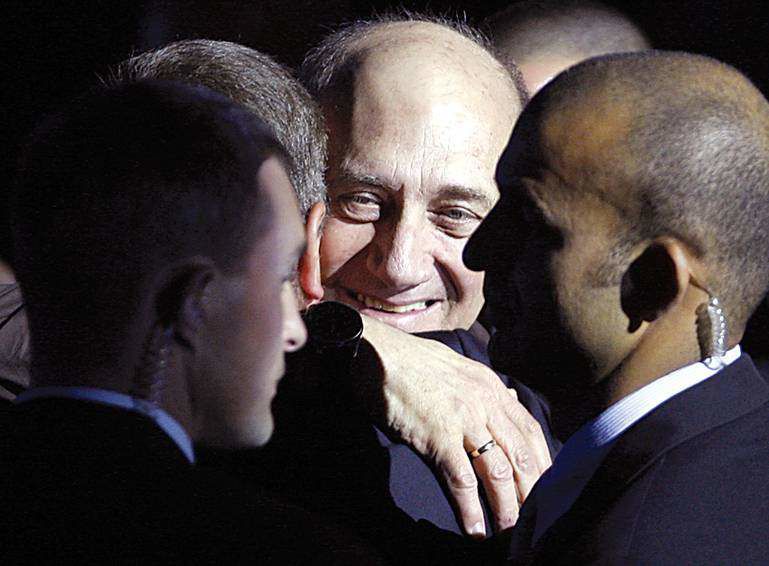Mideast discord ‘is not unbridgeable,’ Olmert says
Published 5:00 am Sunday, May 11, 2008

- Israeli Prime Minister Ehud Olmert, center, hugs a supporter Friday at an event marking the 60th anniversary of the creation of the state of Israel.
With serious criminal charges reportedly pending against him, Ehud Olmert admitted that he was giving some thought to the ramifications of stepping down as Israel’s prime minister. In an interview last week with Newsweek-Washington Post’s Lally Weymouth in his Jerusalem office, Olmert also spoke of his hopes for achieving peace with the Palestinians.
Q: What did you and Secretary of State Condoleezza Rice talk about during her visit here last week?
A: We talked about the ongoing discussions between Israel and the Palestinian Authority, about the possibility of having an understanding that will lead to the realization of President Bush’s vision — the two-state solution.
Q: Do you and she think (a peace agreement with the Palestinians) is possible? Palestinian President Mahmoud Abbas reportedly said when he recently left Washington that he was very disappointed.
A: I don’t want to comment about statements made by Dr. Abbas. My discussions with Condoleezza Rice are serious and in general optimistic that peace can happen — that the distance between us and the Palestinians is not such that it can’t be bridged.
Q: So do you still believe that there can be a declaration of principles or an agreement with the Palestinians (by year’s end)?
A: A more detailed and accurate outline of how a solution of the two states should look.
Q: Does that include Jerusalem and the difficult issues (borders, refugees)?
A: Some of the issues will be discussed later by agreement. The future of Jerusalem is one of them. It is probably going to be the last issue.
Q: It will not be resolved by you and Abbas?
A: Maybe yes, but in a later stage.
Q: In Annapolis, didn’t you, President Bush and President Abbas talk about concluding a statement of principles by the end of this year?
A: I don’t know if you call it a statement of principles or a declaration of principles. They all amount to the same thing. We want to be able to define the vision of President Bush about the two states in a more accurate, specific and detailed manner.
Q: I heard that you have a very good relationship with Abbas. Is that correct?
A: Yes. Because we meet quite regularly. More or less twice a month. I don’t know of any greater frequency of meetings between leaders of nations.
Q: Is it true that the talks have gone fairly far?
A: Yes, I think so — far enough to justify the efforts we are making and the desire to continue. Whether it is sufficient is a little bit premature to say.
Q: What can you say about the talks in detail? Do you think Israel would give up settlements, retreat to the pre-’67 borders? How do you see the final outcome of the negotiations?
A: Well, one can say that the borders, once agreed, will be closer to what they were in ’67 than what they are today because we will give up a large part of the territories … in the context of full, comprehensive peace and the total end of any hostilities.
Q: Does that mean the Palestinians will give up the right of return?
A: I don’t think they have to give it up. They don’t have a right of return, and I don’t think that this is on the agenda as far as Israel is concerned.
Q: You said (a Palestinian state) would be closer to the pre-’67 borders. Do you think you can achieve such an agreement?
A: I think that the distance between us and them is not unbridgeable. I think that there are three issues that can be resolved: One is the territorial issue; the other is security arrangements; and the third is refugees.






